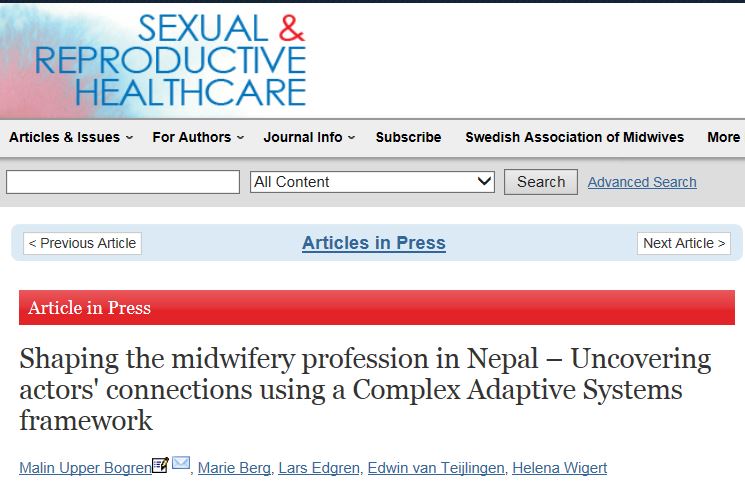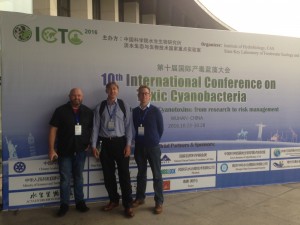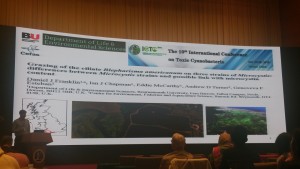Dear all
Schools that work for everyone consultation
In addition to the consultation workshop (second one on 17th November) we have set up a short survey for staff members who have experience of working with schools as governors or otherwise – please complete the survey here and let us have your views (closing on 18th November). Please do pass it on to other colleagues if you know that they are involved with schools. I would also be grateful for relevant research, evidence or case studies about what does and doesn’t work to improve attainment in schools.
Brexit
The big story this week is of course the court decision that Parliament must be consulted before article 50 is triggered. It is hard to say at the moment what the impact will be, there will be a government appeal, the House of Commons may well approve it (after what will no doubt be a lively debate), there may be a more difficult debate in the House of Lords. The only effect may be a delay (although the government say there won’t). There is also speculation about a possible early election either before a vote on article 50 (if it looks difficult) or after if the government loses. There will also be efforts to link approval of the article 50 issue to a further approval of the deal and a possible second referendum – the latter seems unlikely to succeed.
The Committee for Exiting the EU is running an inquiry into government objectives in the Brexit negotiations. There is no deadline but written submissions are requested as soon as possible to inform later oral evidence sessions.
In an article in the Telegraph on 28th October, Alastair Jarvis of UUK writes about government priorities for HE in the Brexit debate: “So what should Government do to maximise the positive impact of universities? In my view, there are four priorities: encouraging students from around the world to choose to study in the UK; making the UK an attractive destination for talented staff; enhancing international research partnerships; and increasing public investment in research and innovation.”
Using research to influence policy: Kate Dommett from the University of Sheffield in the Guardian on 1st November, on why Michael Gove may have a point and experts need to raise their game “There are some easy ways to improve things. At a basic level, academics can focus on timely ways of translating and communicating their research, in a form that is clear, accessible and relevant to parliamentary requirements. They can ensure that expertise is targeted at the most appropriate part of parliament, recognising that the various elements of the system – MPs, advisers, committee clerks and others – have different knowledge requirements. The deeper challenge is to incorporate an understanding of what different audiences want into the research process itself. Whether working with parliament, government, charities or the media, academics can benefit from engaging in a more open dialogue throughout the research process, to ensure that evidence and expert input come in a useful and accessible form.”
Teaching Excellence: The HEFCE TEF guidance was issued this week along with the template for the provider submission, and HEFCE launched its National Mixed Methodology Learning Gain Project to add to the existing pilot studies. The new study will involve 27,000 students from 10 organisations. There is an interesting article on Wonkhe looking at learning gain and other alternative metrics that could be used in the TEF
International Students: Former Education Secretary Nicky Morgan has criticised Home Secretary Amber Rudd’s proposals to limit the sector’s ability to recruit international students based on quality. The article, which appeared on Conservative Home, questioned how ‘high-quality’ universities and courses would be defined. The consultation on this is expected at the end of the month – possibly after the autumn statement.
Credit transfer.
The government is due to respond on to its consultation on credit transfer and accelerated degrees before Christmas. The consultation apparently received 4500 responses (which will have been the result of a request for evidence from individual students about their own experiences. Credit transfer already happens but in a provocative and interesting article anticipating the response, Wonkhe suggest 4 areas for review:
- “Credit can only flourish if it is constituted as a form of common currency, grounded in the clear demonstration of outcomes against a national standard (the Framework for Higher Education Qualifications) and subject benchmarks.”
- “If providers don’t recognize credit given by another higher education institution, the implication is that QAA’s expectations for standards, and the whole UK quality assurance system, might be called into question – a dangerous double standard.”
- “In hierarchical subjects, where higher level work builds directly on a lower level grounding (I need to do Biochemistry 1 before I can do Biochemistry 2), then there is a need for a close matching of course content, but not all subjects are like this. When learners are making a substantive personal and financial commitments to their education this is unnecessarily restrictive.”
- “most graduates don’t go into employment in areas directly related to their degree subject and learners who are in employment, seeking to transfer credit and have their wider learning recognised, may find that traditional honours degrees are not the most appropriate progression route or benchmarking point.”
Regards
Jane
 BU has an agreement with Springer which enables its authors to publish articles open access in one of the Springer Open Choice journals at no additional cost.
BU has an agreement with Springer which enables its authors to publish articles open access in one of the Springer Open Choice journals at no additional cost. 

 Open access to peer reviewed publications has been anchored as an underlying principle in the Horizon 2020 and is explained in the
Open access to peer reviewed publications has been anchored as an underlying principle in the Horizon 2020 and is explained in the 


 ‘Research Fingerprinting’ is a new development on the Research Professional platform that delivers highly relevant funding opportunities to researchers. This will go live at BU on Tuesday, 8th November.
‘Research Fingerprinting’ is a new development on the Research Professional platform that delivers highly relevant funding opportunities to researchers. This will go live at BU on Tuesday, 8th November. The findings of a pilot programme run by Parkinson’s UK to explore the difference patient and public involvement (PPI) can make to research are
The findings of a pilot programme run by Parkinson’s UK to explore the difference patient and public involvement (PPI) can make to research are 


 The
The  Bournemouth Natural Science Society would like to invite you to talk on ‘Increasing Crop Yield through understanding Plant Nutrition’.
Bournemouth Natural Science Society would like to invite you to talk on ‘Increasing Crop Yield through understanding Plant Nutrition’.










 Expand Your Impact: Collaboration and Networking Workshops for Researchers
Expand Your Impact: Collaboration and Networking Workshops for Researchers Visiting Prof. Sujan Marahatta presenting at BU
Visiting Prof. Sujan Marahatta presenting at BU 3C Event: Research Culture, Community & Can you Guess Who? Thursday 26 March 1-2pm
3C Event: Research Culture, Community & Can you Guess Who? Thursday 26 March 1-2pm UKCGE Recognised Research Supervision Programme: Deadline Approaching
UKCGE Recognised Research Supervision Programme: Deadline Approaching ECR Funding Open Call: Research Culture & Community Grant – Apply now
ECR Funding Open Call: Research Culture & Community Grant – Apply now ECR Funding Open Call: Research Culture & Community Grant – Application Deadline Friday 12 December
ECR Funding Open Call: Research Culture & Community Grant – Application Deadline Friday 12 December MSCA Postdoctoral Fellowships 2025 Call
MSCA Postdoctoral Fellowships 2025 Call ERC Advanced Grant 2025 Webinar
ERC Advanced Grant 2025 Webinar Update on UKRO services
Update on UKRO services European research project exploring use of ‘virtual twins’ to better manage metabolic associated fatty liver disease
European research project exploring use of ‘virtual twins’ to better manage metabolic associated fatty liver disease